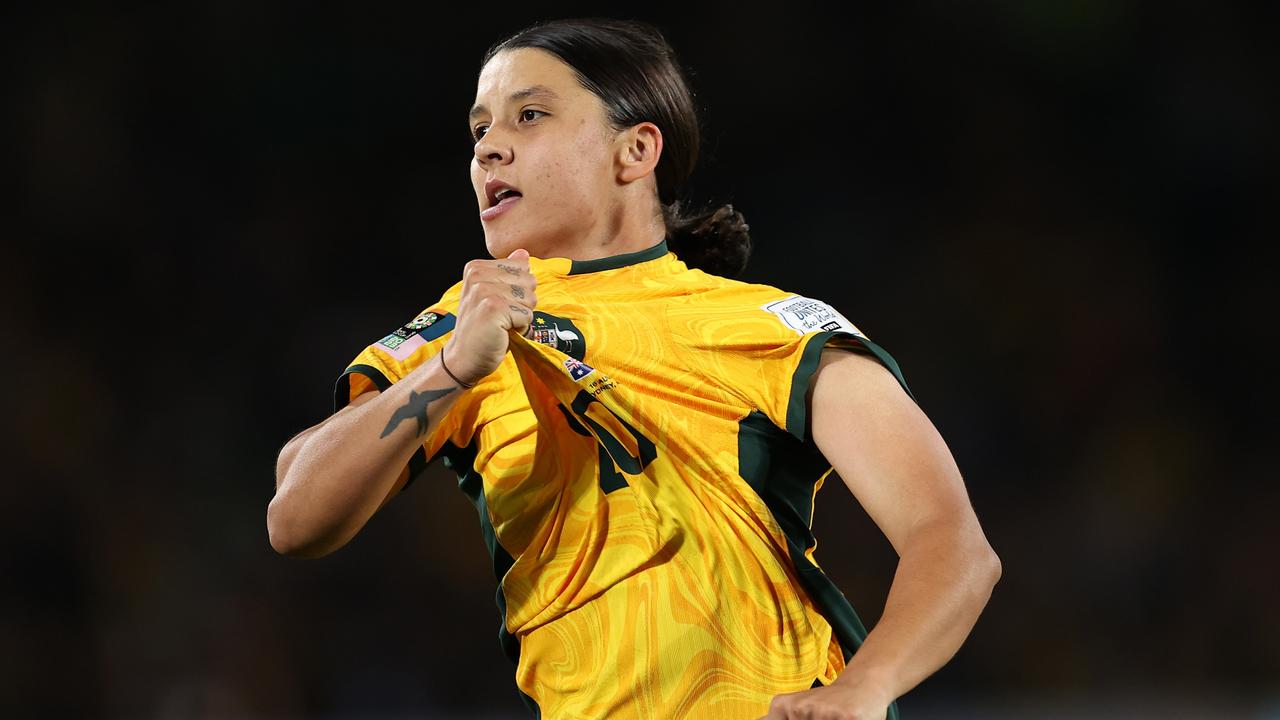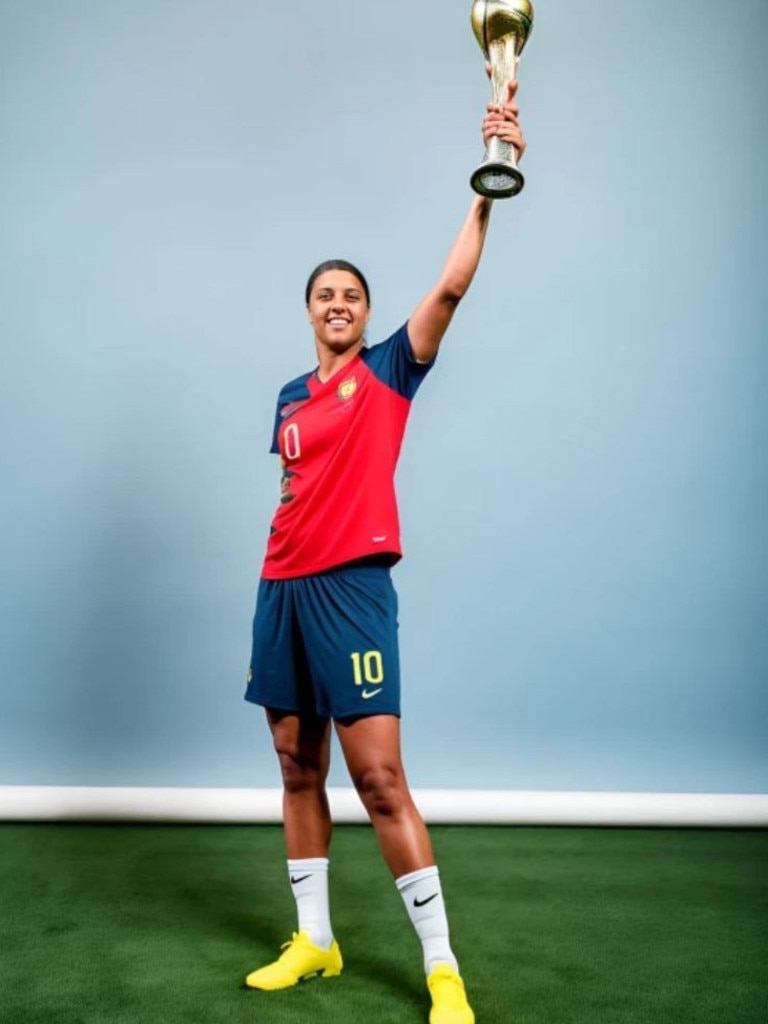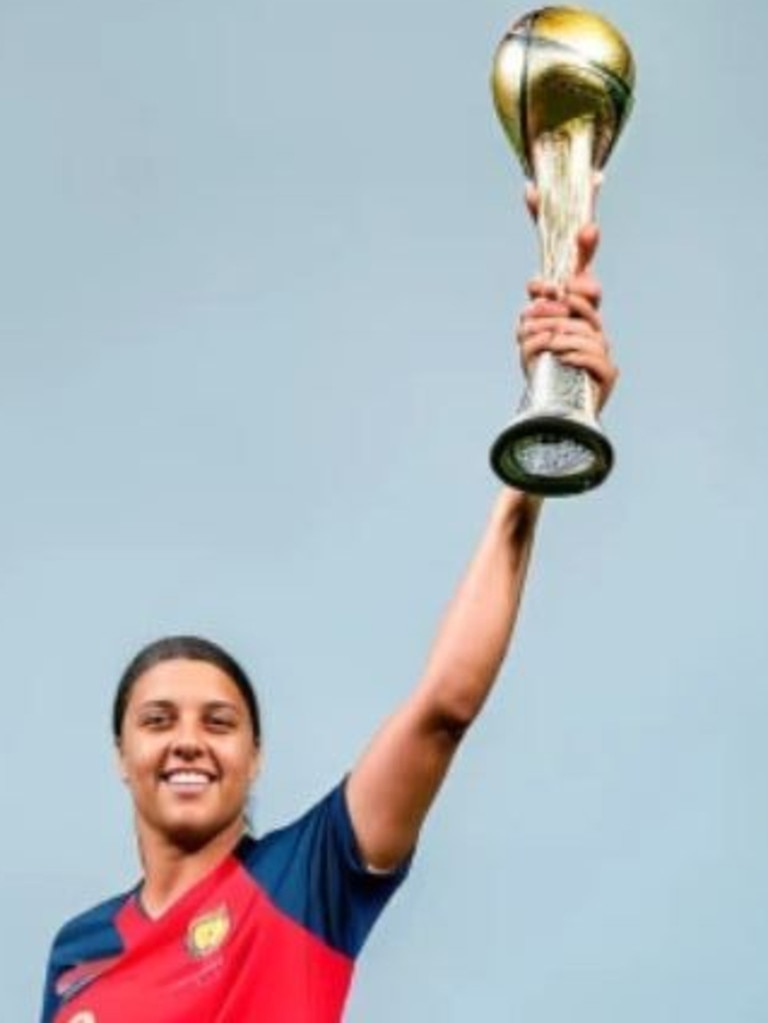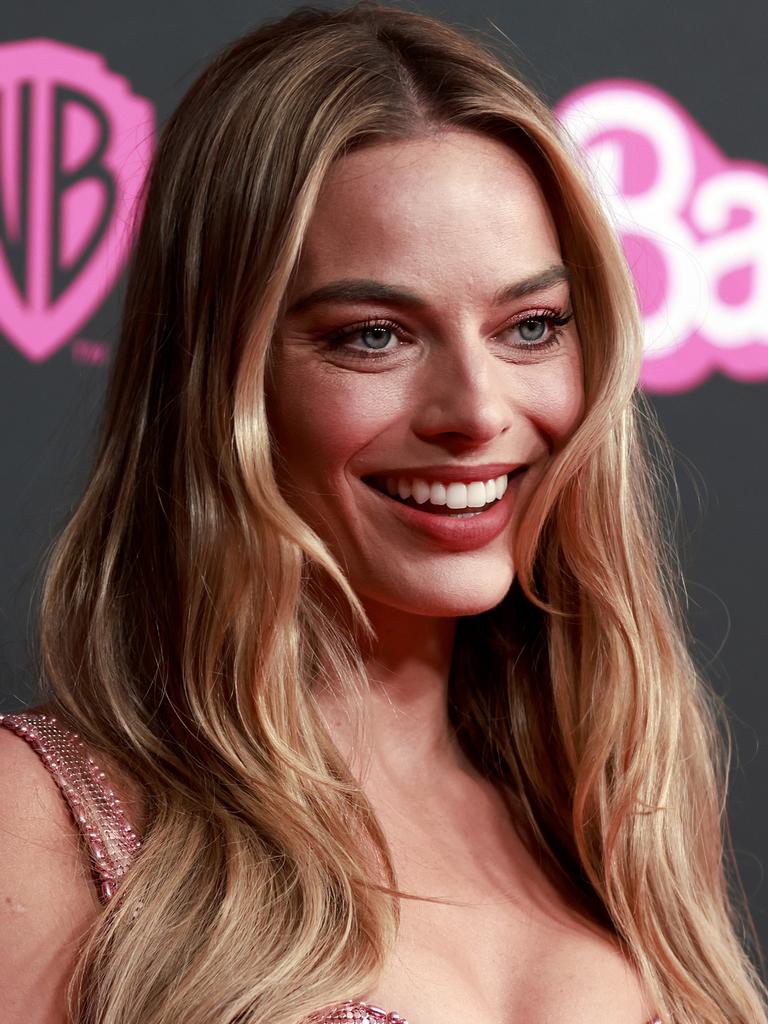Sam Kerr, Margot Robbie top 2023 Power List, but their ‘bizarre’ portraits have caused a stir among fans
A weird image of Australian actress Margot Robbie accompanying her place on a list of powerful Aussies has raised eyebrows.
A flattering magazine article about Aussie superstars Sam Kerr and Margot Robbie has backfired with fans blasting the publication’s bizarre AI-generated images of the celebrities.
The Australian Financial Review Magazine deemed Sam Kerr and Margot Robbie to be the most culturally powerful people in Australia in its annual list.
The Matildas star topped the list of the 10 Australians who “made the biggest mark on culture this year”, followed bythe Barbie star.

The list also includes Arts Minister Tony Burke, Senators Jacinta Nampijinpa Price and Lidia Thorpe, ABC presenter Tony Armstrong, and captain of the Ashes Test-winning cricket team Pat Cummins.
But, wait, something isn’t quite right.
In a twist to the usual portrait feature format of the magazine, the AFR has turned to artificial intelligence to get fresh portraits of some of the international stars to grace the list – with somewhat absurd results.
Unlike the rest of the faces on the list, Kerr, Robbie and Cummins’ faces aren’t actually there.
They’ve been replaced by an AI-generated image – with hilarious and “disturbing” results.
“AFR just using AI-generated images in regular stories now, hey,” wrote one person on social, while another said “look how they {the AFR] massacred my girl [with AI].”


At first glance, the images bear an eerie resemblance to the international stars; but on closer inspection fans pointed out one freaky – but hilarious – mistake on the AI Kerr, Robbie and Cummins.
It seems the AI has no idea what to do with their hands: enlarging them and giving them more fingers.
The AI posed Kerr – dressed in red and blue and her staple bright boots – was pictured gripping onto the FIFA Women’s World Cup with a number of extra fingers.
A similar mistake was made with the Aussie Test captain, which some fans suggested would make the fast bowler an even scarier weapon to face on the cricket pitch.
Meanwhile Robbie, who appears to sit behind ex-prime minister Scott Morrison’s desk – was hands that didn’t quite match up.

To generate the images, the AFR creative team recruited Rodolfo Ocampo, a PhD candidate in AI at UNSW, to train AI called Stable Diffusion.
The team then used Midjourney to create the sets for the Power listers to appear, then returning to Stable Diffusion to pose the AI-generated stars in place.
AFR Magazine editor Matthew Drummond explained in an op-ed that the publication chose to use AI images to reveal the dangerous ease of generating “high-quality fake photos” in seconds.
“At times, creating this issue felt like peering into an alternative universe where hundreds of high-quality fake photos can be generated in seconds,” he wrote.
“The potential for misuse of AI to generate fake images is an emerging risk, especially in today’s image-led culture, in which so much information is consumed quickly on social media.
“Perhaps this issue, in a small way, will spur on business leaders, cultural leaders and politicians to think more urgently about those risks, and what to do about them.”



In another piece, Drummond wrote there were “ethical considerations” when making the images, which could be used as deepfakes.
“Such fakes are set to add a new dimension to misinformation campaigns, and we’re keen not to add to that problem,” he wrote, as such the team used publicly available images through the AI, while keeping their new portraits separate.
“This is because we wanted to see how far we could push the AI to create magazine-quality portrait photos, without giving it a helping hand from our own shots.”
Though the uncanny pictures have sparked much debate, it is not the first time some of the Power listers have been turned into AI.
Sam Kerr is one of many celebrities to be turned into chatbots by Meta – the parent company of Facebook, Instagram, and WhatsApp – in its latest push into “the metaverse”.
The 30-year-old soccer star has been used as the model for a chatbot named Sally, described by CEO Mark Zuckerberg describes as a “free-spirited friend”, ABC reports.
The chatbot is one of 28 that are still in beta form and only available in the US so far, but will be accessible through Instagram, Messenger or WhatsApp.





